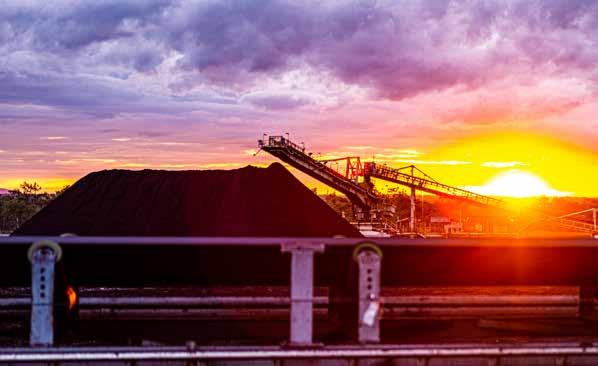
17 minute read
Big ideas for industry: the BBMC Crib Room Podcast
from BBMC Yearbook 2020
by bbminingclub
As a new initiative in 2020, we started the BBMC Crib Room Podcast. In the Crib Room, we sit down with mining industry leaders and trailblazers to find out how they joined the industry, how they’d tackle big issues, and where they see the future of the industry heading.
Nothing is off the table in The Crib Room – here’s an excerpt of the ‘big ideas’ we discussed in Season 1. Interested in Season 2? Search ‘BBMC Crib Room’ wherever you listen to your podcasts, or visit bit.ly/ cribroompodcast.
Episode 1 The Big Questions – the Hon. Keith Pitt, Minister for Resources, Water and Northern Australia
This open and frank discussion was an opportunity for the Federal Minister to outline his approach to his (at the time) new portfolio and how the pandemic has impacted activity. Right from finding out the Minister’s passion for car restoration and his humble start as an electrician, to discussing localised manufacturing and processing of our abundant natural resources – our discussion covered it all. The Minister also explained his views on some big questions like energy security and the plans for COVID-19 recovery. “It’s a world of opportunity, but we've got to get the fundamentals right: and the fundamentals are a competitive gas price and a competitive electricity price. We do need to be able to continue to compete in a worldwide market. Australia's always been a trading nation. We will continue to be a trading nation and trade means jobs for us. The price of electricity is critical for everybody in Australia, whether you are the butcher, baker or candlestick maker, and particularly if you want to be competitive in manufacturing and downstream processing. I know wholesale prices are down substantially right across the market, so I'd expect that will flow through to domestic prices in the very near future. The Australian Government has committed to underwrite new power generation into the market. And of course, additional supply always means lower prices. In terms of a gas-fired recovery [from COVID-19], there's technology potentially on the horizon, but we’re not going to sit around and wait for technology to appear. We are working hard in the hydrogen space, but a gas-led recovery will mean lower electricity prices as long as we can get competitive gas prices into the market.”
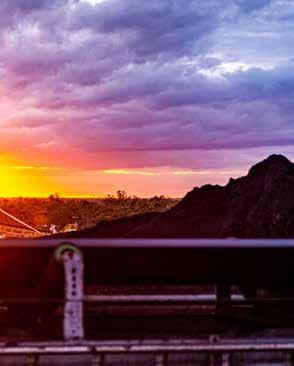
Dan Whitmore
Episode 2 Business Development – Dan Whitmore, Director, DJW Consulting
Dan Whitmore established DJW Consulting as a means to becoming a conduit for business development throughout a number of niche market sectors. As an industry professional, Dan ‘connects the dots’ for contractors and companies in mechanical and civil sectors throughout Queensland, the Northern Territory, New South Wales and South Australia. The topic on everyone’s mind at the time of the podcast interview in was the COVID-19 pandemic. The conversation centred around the importance of relationships in unusual times, how COVID-19 has changed the way business development works, and some top tips for business development in the mining industry. Our ‘big question’ for Dan was expansive – we asked what Dan saw as the future of coal. His reply was emphatic: “Coal has a massive future – I’m all for renewables to do what they can on some energy demands, but coal is needed as well to bear the brunt of energy requirements for the economy. Coal right now is part of the backbone of the economy (during COVID-19 recession). We dig the coal out and send it overseas and I find it interesting that currently Australia is not building any new coal-fired power plants, while overseas building is going on at a great pace. We need to keep business going and adapt to our ‘new normal’ – if that means working from home then we need to keep calling and emailing to keep our working relationships flowing. It’s interesting times for business development but the main thing is to keep working on every channel. If you’re a small company, wanting to break into the mining contractor business, it’s all about having the right people, the right equipment, the highest standards in safety, onboarding and qualifications. If you can build the relationships and present the credentials to prove you can do the job, you’ll eventually be able to start tendering – there may be some lessons to learn before you win a contract, but once you have a foot in the door, you’re on the way. Don’t neglect your contacts and who you might be sitting next to at that luncheon, airport lounge or conference.”
Photo: Josh Kelly Episode 3 Resources, rugby and culture – Nathan Sharpe, Executive General Manager, Brunel Client Services
Many people would remember Nathan from his days as a rugby great. Currently, Nathan heads up the Australian arm of Brunel, providing recruitment and labour services to projects and organisations in energy and infrastructure. His unique career path has given him a leadership edge that he now brings to the industry. Nathan introduced an engaging perspective on the similarities between leadership in rugby and in mining. The conversation explored his expertise and experience in mentoring and producing a successful team culture while balancing safety and productivity. Our big question for Nathan focused on the skills shortage. We’ve seen record low numbers of graduates in disciplines like mining engineering, as well as losing potential tradespeople to other industries – we asked how do we turn that around and ensure a secure future with good people for the resources industry? “I think a lot of it is about leadership. The mining sector is a very cyclical beast – what I tend to see is that a commodity goes off the boil and companies tend to focus on the coalface (for want of a better word). Everything else gets thrown out in an effort to survive. The companies who adapt to cutbacks and also manage to keep some focus on bringing new-toindustry people in like engineers, mechanical trades and an apprenticeship program. These are the companies to follow and take a leaf out of their book for the inevitable ‘next time’.
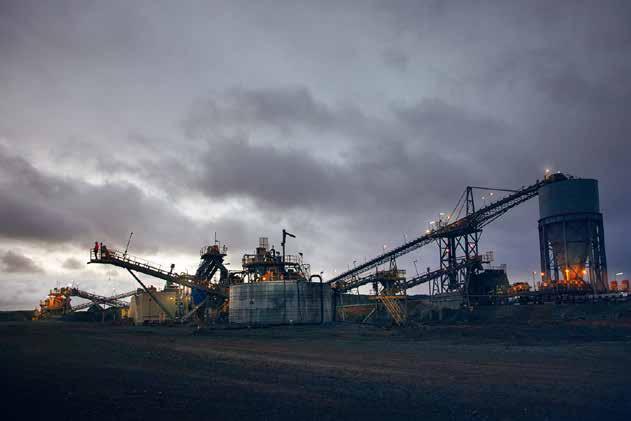
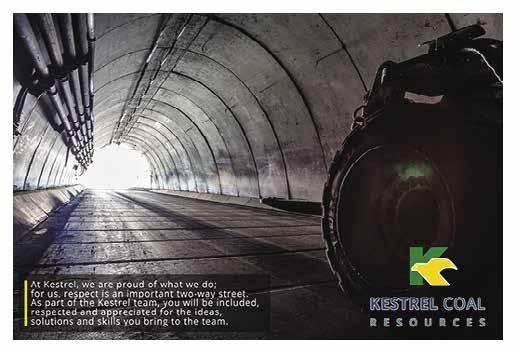
For the sake of the sector going forward, companies need to keep those entry pathways open, as there’s enough really good young people out there looking for opportunities. But if those pathways are closed, there’s a confluence with social pressure that mining is ‘big and bad’ and that leads to shortages. But it all comes down to leadership and creating avenues for people to get into the industry.”
Episode 4 Indigenous Engagement – Margarita Escartin, Lead Consultant and MD, Red Cliff Project Consultants
Margarita works with companies and communities, facilitating positive social impacts through project development. She has a strategic, people-centred approach to community engagement, and is well-known in the Queensland mining industry. Margarita talked about what best practice in indigenous engagement looks like, with the perspectives of her long and varied experience. She talked frankly of the challenges facing the industry, and also what can be achieved together. We asked Margarita what she considered her biggest achievement to date. There have been two standouts so far: “I’m particularly proud of what’s been achieved with QCoal, Byerwen Mine and Jangga Operations. Although we’ve worked with a unique set of circumstances that is not often afforded commonly, we’ve seen lasting, long-term development and employment results because of leadership from the front, agility and an ability to respond, and very deep-seated relationships with traditional owner groups. Working alongside these people has been the most joyous and rewarding aspect - designing projects, understanding what people can and can’t do, and creating an environment that facilitates opportunities to create change in their lives through economic participation. My other highlight has been international work. Firstly, assisting with indigenous engagement for a development project in Honduras (I am fluent in Spanish), and most recently, working on environmental social governance due diligence for a hydro project in Nepal. My ‘peak’ moment was surveying the world surrounded by snow-capped Himalayan mountains. I’m keen to pursue more international work when the opportunity arises.”
Episode 5 Shifting our innovation mindset – Dr Sharna Glover, CEO, Imvelo
Imvelo was founded by Dr Sharna Glover and Dr Alan Bye to deliver business transformation using value chain solutions and their deep understanding of industry ecosystems and enterprise system technology. This episode tackled the issue about why ‘the way it’s always been’ damages the industry. Sharna approaches the topic of innovation with a refreshing mindset and global perspectives about Industry 4.0 and upcoming opportunities in mining that make you sit up and think. We asked Sharna what she’d say to someone who says that automation means job losses on the ground. Her response was clear: “The word ‘robotics’ does frighten people in terms of job losses. Certainly, what we’ve seen is that we generate at least five times the jobs we replace including the flow-on effects in industry and the companies we build outside of a mining company to provide the solutions we want. I think the reaction is because people don’t think through the ecosystem of, say, one automated truck, for example – • the people needed to code and build the software to run the truck • the people who build the hardware that goes into the truck • the maintenance of the systems • the community who support the solutions, such as network communications and data flow We’re also not taking jobs away – the focus is on reskilling and future-proofing people already in the industry – they’re so valuable because they know the mine and add their understanding to the new skills learned. There’s huge opportunity for more jobs, and we work hard to see that industry recognises that. We do whatever we can to find and manufacture solutions in Australia, rather than buy in from overseas and encourage the growth of the robotics and automation industries through not-for-profits like Robotics Australia Group.”
Margarita Escartin

Mark Gresswell
Episode 6 Vision, green shoots and ‘big small’ companies – Michael Gray, CEO, NewBlack Energy
MG (as he is commonly known) was the inaugural speaker at the BBMC Emerald Luncheon back in 2012 and has 25 years’ experience across all facets of the industry from government, to large corporations, greenfield projects, coal markets, M&A and project finance. Michael’s conversation ranged widely across his massive breadth of experience in coal mining in Queensland. His perspectives on the state of the sector, the lessons he’s learned from mentors like Ken Talbot and others, and his faith in the future of mining businesses, large and small, shone through. We asked what Michael would change about the approvals process for expansions and greenfield projects, if he had a blank slate: “One of my key frustrations is the amount of technical review required to meet the terms of reference for approvals. You end up with literally kilograms of reports and 90% of them are generic, ‘tick-a-box’, no matter what type of resource project it may be, whether it’s an oil refinery in Cairns or an LNG project in Southport. If there’s a particular environmental issue with a project, I continue to think the best value for money would be to spend the resource on learning about that, rather than waste money on a long process. I think this change might be a bit utopian, though, since the opposition to a coal project will always try to focus on every little issue they can find, even minor administrative issues that just bog down the project.”
Episode 7 Coal Marketing 101 – Mark Gresswell, Director, Commodity Insights
Mark manages a team of analysts digging to discover global market insights, with over a decade of experience in coal marketing and consulting. Mark spoke about the state of coal marketing in 2020, particularly focusing on the pandemic’s effect on global commodity markets, how Australia is placed, and what the evidence says about the future of coal. We asked Mark for his take on the future of coal, given the back-and-forth between activists who say coal is dead and the International Energy Agency who say it will be part of the energy mix for decades to come. “Next time you speak to an activist, ask them for the facts around their argument. We do an analysis on facts, based on what coal plants are being built and what policies are being developed right now. For longer than I’ve been in the business, activists have been saying that coal is dying. Our firm view is that thermal coal has a very bright future, and to put some context around that statement, the facts are:
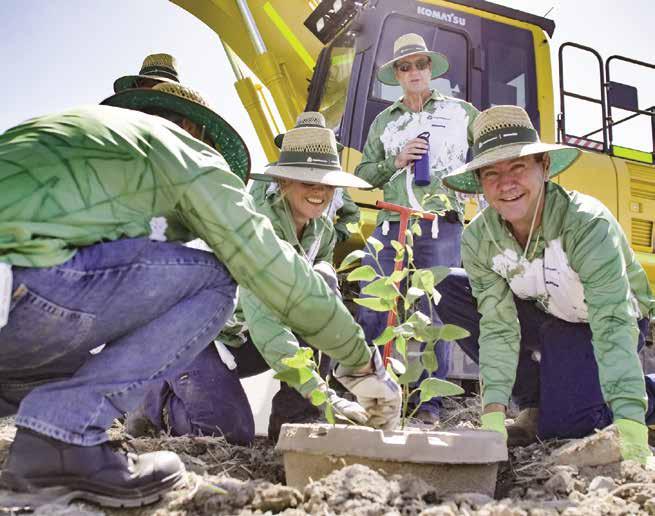
• Since 2006, the seaborne thermal coal market has doubled in size – it’s now a billion tonnes • Coal exports have grown in volume every year except 2015 • Global economic growth in the next 15-20 years will be driven by China, India, South East Asia, Pakistan and
Bangladesh • All these countries have relatively low electricity consumption and are forecasting a doubling of demand as they move to a higher standard of living • All energy resources will have a role to play, but every country is planning to build coal-fired power plants as major energy sources • Coal is clearly the cheapest, very safe and widely available The only way Australian coal exports won’t continue to grow is if Asian economies falter significantly – and if that happens, we have bigger things to worry about!”
Episode 8 Community Voices and Engagement – Dr Kieren Moffat, CEO, Voconiq
Kieren is a social scientist and the CEO and co-founder of Voconiq, a company that’s driven by science, aiming to understand and quantify relationships between communities, companies, industries and governments. Voconiq was built on the back of 10 years of CSIRO research by a team of social scientists, led by Kieren. They aim to improve community engagement using data science and analytics capabilities. We asked Kieren, given a blank slate, how he could redesign the entire community engagement process. What would it look like - right from EIS to operations? “If I was to introduce one big idea to the sector, I would take a step back and create a single source of truth for communities. It would be a one-stop shop driven by a science-based concept to: • engage everyone in the community and ensure all voices are heard in the right places • inform the conversation about how mining looks • update everyone as the project develops • meaningfully connect the community to influence project trajectory The results could eliminate the community being ‘oversurveyed’ and asked the same questions repeatedly by different stakeholders. It could deliver increased clarity about where the data goes and who uses it and how. The community should be able to see how their perspectives end up shaping the project. It would flip the model by reducing the load from being on the community, to the burden of value being with the community.”
Episode 9 Environment, activism and approvals – Ngaire Tranter, CEO, Nitro Solutions
This episode was like speaking to an old friend, as we caught up with Ngaire, an environmental scientist who took an interesting path to where she is today (Steve Irwin and a stint as a flight attendant were significant landmarks on the journey – listen to the episode for the full story!). We discussed everything from how the industry could better advocate for ourselves and educate our detractors, to how to redesign the Environmental Impact Statement process for a modern world. Ngaire’s big industry question followed our discussion on the EIS process: as an environmental scientist on the ‘front lines’ of helping companies comply with their approvals, how does activism complicate your job? “You never really know when it's going to raise its head. In my experience with activism, it is a case of localised projects being picked up to fit in with a global issue, then all of a sudden it ends up on the internet and you’re the meme. It is hard to pick, and Social Licence to Operate frameworks go some way to try and encapsulate that, but really the issue that we all face is operating in that digital space. There’s no real regulation around digital, yet we allow that to form part of our approvals process. It seems really odd to me that we allow that full-scale, anonymous, digital input on things, rather than speaking to the community that’s directly affected, in a system that’s designed to allow our communities to participate. I think industry and government and practitioners like myself really need to step back and have a look at what is going on there. Is it valid to allow activists to tap in anonymously and digitally to leverage the EIS process?
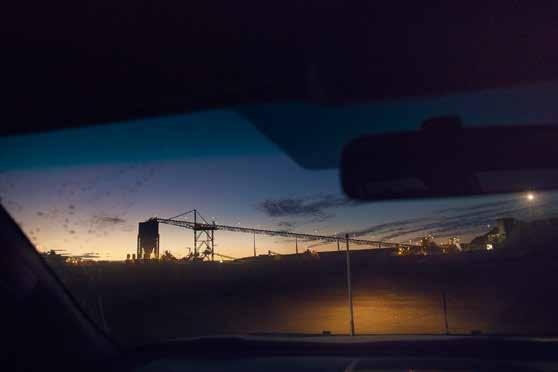
Photo: Josh Kelly
Within the EIS process there’s licencing opportunities for input, there's political opportunities for input, and then there’s community input. Activists tend to leverage in all three parts of the circle, to make their voices seem a lot louder. They conduct digital warfare, where they might have 10,000 participants in a group, and they will target a project or submission and get everyone to make 10 comments. All of a sudden, it's this massive digital storm, and it's not necessarily based on fact. When you're working in that space, it's really hard once there's misinformation out there to prove what the facts are.”
Episode 10 Diversity, data and operations – Mark Scott, COO, Hastings Deering
To round out Season 1 of the podcast, we spoke to Mark about the changing face of the industry, particularly from the perspective of an OEM. Mark manages a portfolio that stretches across Australia and internationally to New Caledonia and Papua New Guinea – but he says the one common feature is the ability of the industry to adapt, no matter what unique challenges are presented. We asked Mark about technology development and the biggest game-changer for OEMs, and this is what he had to say: “We have seen a lot of changes in technology, and I think we'll see a lot of changes still to come. One of the things that I particularly find interesting is the amount of data that becomes available through a connected site. So much of the equipment, not only the mobile equipment and the heavy equipment, but also everything from a washplant to a train: there's so many different pieces of information and data that are becoming available to us and to our customers. This data helps us improve our operations from a safety perspective, a reliability perspective, as well as an operational and productivity perspective. With that comes new opportunities and new skills in the industry. I wouldn't have thought seven years ago that I would be employing data scientists and mathematicians! It’s amazing some of the programs that these people develop and create, and the problems they solve through data and insights is phenomenal. The connected site is a great opportunity, and it has been a game changer. We continue to invest in technology as an OEM. Caterpillar are at the leading edge around the technology that they're providing on machines, whether that improves your fuel efficiency or helps your productivity, there's great opportunities in that space to continue to add value to customers and make them more successful.”

LOCAL PARTNER, GLOBAL EXPERTISE
Bureau Veritas Minerals Coal Testing Group in Australia is your trusted partner for all Coal Quality Sampling and Analysis requirements:
Exploration Borecore drilling analysis Mine Site Laboratories and Rapid
Process Control analysis Train and Port Terminals Sampling and Analysis Coal Shipment Certification Innovative Coal Spectral and Machine
Learning applications Technical Governance Audits – CHPP
Process and Sampling Systems Specialised Coking Coal test methods
bureauveritas.com.au | salescoal@au.bureauveritas.com | +61 2 4902 4800










